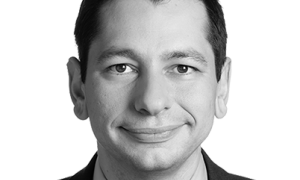Last December, the U.S. arrested Manuel Rocha for secretly acting as an agent of the Cuban government. During his decades-long career in the State Department, Rocha orchestrated one of the most damaging foreign espionage campaigns in the country’s history. He is now set to plead guilty in a Federal Court.
The Rocha scandal and Havana’s latest crackdown on protests in Cuba should remind Washington of the criminal and hostile nature of Cuba’s dictatorship, as well as the folly of attempts to engage Havana as a good faith diplomatic partner. Rocha’s deception also exposes the worrying deficiencies in U.S. counterintelligence operations and highlights the remarkable reach of America’s adversaries, including not only Cuba but also China.
During Rocha’s duplicitous career in the U.S. State Department, he served in top diplomatic roles around the world, including as U.S. ambassador to Bolivia. Rocha even held the top position on Latin America in the Clinton White House’s National Security Council.
Crucially, Rocha’s time in the National Security Council and subsequently the U.S. Interests Section in Cuba coincided with the island’s so-called “special period” in the 1990s, a time of unique vulnerability for the Castro dictatorship following the collapse of its primary benefactor, the Soviet Union. Rocha’s positions during this period would have empowered him to provide invaluable support to Cuba, undermining U.S. efforts to promote freedom on the island.
>>> Cuba and Iran Are Still State Sponsors of Terrorism
As recently as 2012, Rocha served in influential roles in the Obama administration, including as an adviser to U.S. Southern Command on Cuba.
The full extent of the damage Rocha has wrought to U.S. national security is unclear. However, the level of impact can be seen in one particularly troubling episode of Rocha’s career, in which he directly enabled the rise of Bolivia’s anti-U.S. strongman, Evo Morales.
Just prior to Bolivia’s 2005 presidential election, Rocha, then the U.S. ambassador, issued a statement discouraging Bolivians from voting for Morales. This had the predictable effect of rallying nationalistic support for Morales, propelling him to an eventual victory in Bolivia, where he remains a dominant political force, to the detriment of regional security and democracy.
Rocha is not the first high-level Cuban spy to infiltrate the upper echelons of the U.S. government. Indeed, he operated contemporaneously with Ana Belen Montes, a senior analyst at the Defense Intelligence Agency who spied for Cuba for 17 years before her arrest in 2001. Cuba’s regime has developed what might be the most sophisticated espionage operations in the world, operating international spy networks in Miami and across Latin America, where they have fomented social unrest against U.S.-aligned governments. In Venezuela alone, there are thousands of Cuban agents operating in direct support of the criminal Maduro dictatorship.
Notably, both Rocha and Montes were recruited by Cuba not as senior officials, but as young students. This reveals how Cuba’s communist regime seizes on the ideologically friendly environment of the American university system for recruitment. Havana grooms and guides young ideologues as they slowly infiltrate the U.S. government. This also ensures that they do not have to rely on bribery or other methods that could leave paper trails.
Beyond universities, Havana even seeks out ideological allies in the U.S. Congress, as was highlighted by the recent secretive trip to Havana by Representatives Ilhan Omar (D-Minn.) and Pramila Jayapal (D-Wash.). Soon after her return, Representative Omar took to the House floor to condemn the U.S. embargo on the Cuban dictatorship.
>>> The Way to Cuba’s Heart Is Through the Internet
To see the reach of Cuba’s malign influence, one need only examine how Rocha’s public statements on Cuba after leaving government are mirrored in academia, the press and elite D.C. policy circles. With Rocha in custody, investigators may begin to uncover the network of Cuban agents that worked with him in support of the dictatorship in Havana.
In short, Rocha and Montes are not the only Cuban agents to have penetrated the U.S. government. They are just the ones who were caught.
The depth and duration of these scandals alone exhibit glaring deficiencies in U.S. counterintelligence. Even more shockingly, U.S. agents ignored multiple red flags in these cases, disregarding early tips from Cuban defectors about Rocha’s duplicity.
Cuba continues to aggressively employ espionage and influence operations in the U.S. and beyond to harm the U.S. Cuba’s actions consistently show that it remains a dangerous malign actor in the Western Hemisphere. With this in mind, efforts by the Biden administration to once again ease restrictions on the Cuban dictatorship will only embolden and empower it to take more destructive action against the U.S.
Instead of appeasing Havana, Biden should take action to root out and counter espionage and malign influence by Cuba and China. To that end, Congress should hold hearings to provide oversight and address deficiencies in the U.S. security clearance process and counterintelligence capabilities. Without serious action on these fronts, hostile powers will continue to leverage our vulnerabilities to damage U.S. national security.
This piece originally appeared in The Hill on March 26, 2024


